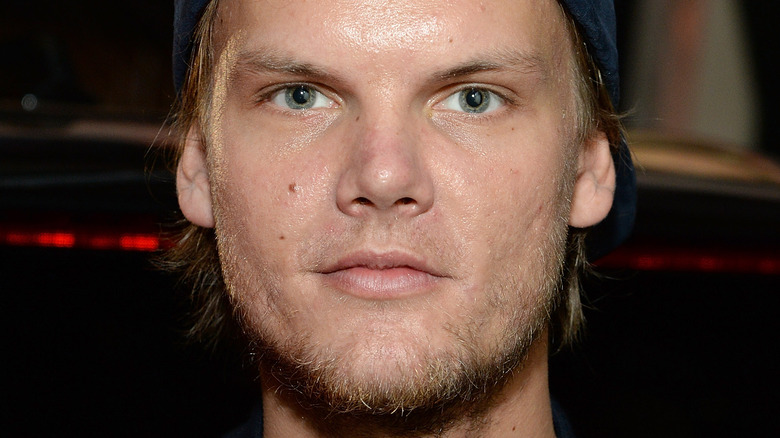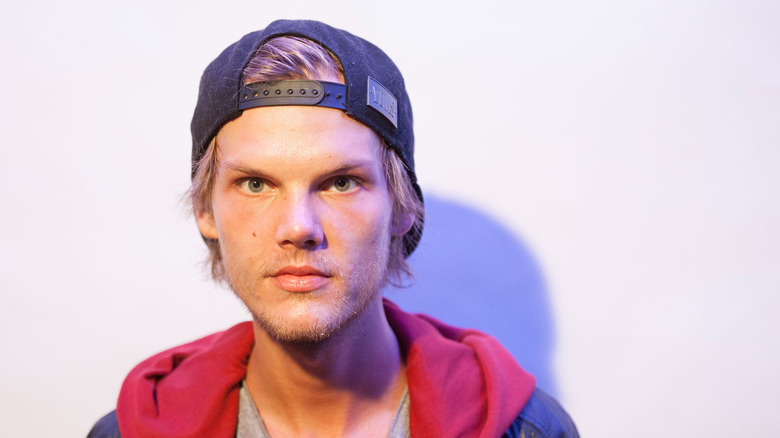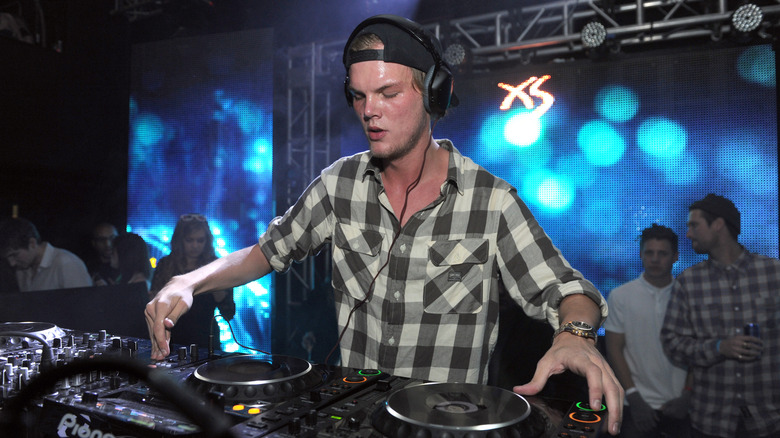Avicii's Father Confirms What We Suspected About His Son's Tragic Death
This article includes mention of suicide.
Avicii had been making music professionally since he was 16 — that's how old the Swedish DJ, born Tim Bergling, was when he snagged his first record deal, according to The Guardian. He shot to prominence a few years later with the release of the single "Levels," for which he received a Grammy Award nomination in 2012, an accolade that came on the heels of his first nomination for a collab with David Ghetta the previous year. In 2013, Avicii released the hit "Wake Me Up," further propelling him into stardom. But Avicii had a hard time balancing the extroverted world of electronic dance music with his private self, who was shy and uninterested in fame. "I love what I do, but I've never liked being recognised or being in the spotlight," he once said, per The Guardian.
In March 2016, Avicii announced he would no longer tour. "I know I am blessed to be able to travel all around the world and perform, but I have too little left for the life of a real person behind the artist," Avicii wrote in his statement, per Rolling Stone, adding that he would continue to make music and "to speak to my fans through it." Almost exactly two years later, Avicii was found dead while vacationing in Muscat, Oman. He was 28. Avicii's death was widely reported as a suicide at the time, according to Rolling Stone. Now, Avicii's father, Klas Bergling, is opening up about the tragedy and what we may have missed.
Avicii's family talks openly about his suicide
The cause of Avicii's death was unclear when reports first began to surface that the DJ had been found lifeless in Oman. However, Tim Bergling's family have publicly acknowledged his death as suicide, even though they refrain from going into specifics. "I think you should call things what they are," Avicii's father, Klas Bergling, told The Sunday Times (via Independent) in an interview published on December 12. Bergling and Avicii's mother, Anki Liden, received a phone call from someone who had accompanied Avicii on vacation reporting concern over the DJ's mental state, he told the British publication. Bergling and Liden were making arrangements to fly out to meet their son when they received another call reporting Avicii had been found dead. "It's obvious there were things I didn't see," Bergling said.
Bergling believed Avicii had found a happy medium when he stopped touring in 2016. "He was much healthier and he started exercising. And things really turned into a very, very good direction... The suicide came as a shock to all of us. And we thought that he was really on a better way before," Sterling told CBS News in 2019. Ultimately, Bergling believes the damage had been done, blaming it on lack of proper mental health care in an industry that often banks on young artists. "It's fame and fortune, and that's a very dangerous combination. When you have an up-and-coming artist there should be some structure," he told The Times.
Avicii's family works to raise awareness for mental health
Ever since Avicii's death, his family has tried to convert his tragic loss into something meaningful. Avoiding sugarcoating Tim Bergling's cause of death was one way they found to break the stigma around suicide. Just a week after, the family released a statement in which they implied Avicii had died by suicide, according to Variety. "Our beloved Tim was a seeker, a fragile artistic soul searching for answers to existential questions ... He really struggled with thoughts about Meaning, Life, Happiness. He could not go on any longer. He wanted to find peace," the statement read.
But they didn't stop there. In March 2019, a year after Avicii's death, his family launched the Tim Bergling Foundation to raise funds for mental health and suicide prevention, in addition to other causes, like climate change, as Rolling Stone reported at the time. "Tim wanted to make a difference — starting a foundation in his name is our way to honor his memory and continue to act in his spirit," his family said in a different statement.
In addition to music, Avicii was also passionate about humanitarian causes. In 2011, Avicii announced the "House for Hunger Tour," whose profits he vowed to donate to Feeding America, according to Page Six. "When you have such an excess of money you don't need, the most sensible, most human and completely obvious thing is to give to people in need," he said in 2013.
If you or anyone you know is having suicidal thoughts, please call the National Suicide Prevention Lifeline at 1-800-273-TALK (8255).



